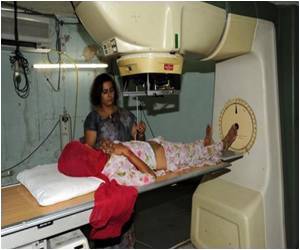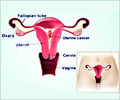A study finds radiation therapy used to treat uterine cancer may increase a patient's risk of developing bladder cancer stressing the need to monitor patients for potential signs of bladder cancer.

To investigate the issue, Guan Wu, MD, PhD, of the University of Rochester Medical Center, and his colleagues analyzed the records of 56,681 patients diagnosed with uterine cancer as their first primary malignancy between 1980 and 2005. The information was obtained from the Surveillance, Epidemiology and End-Results (SEER) database.
With an average follow-up of 15 years, bladder cancer incidence in uterine cancer patients treated with pelvic radiation therapy was twice as high as that seen in patients treated without radiation. Similarly, the death rate from bladder cancer was nearly three times higher in patients treated with pelvic radiation than in those who did not receive radiation. It is commonly thought that bladder cancers that develop after pelvic radiation tend to be aggressive, with high grades and stages, but this study found that the types, grades, and stages of bladder cancer that developed were similar in patients treated with and without radiation therapy.
"Physicians who care for patients with a history of uterine cancer and pelvic radiation treatment should keep in mind the increased risk of bladder cancer," said Dr. Wu. "Proper clinical evaluation should be performed to avoid delayed diagnosis, which may improve the quality of care for this group of patients."
Source-Eurekalert
 MEDINDIA
MEDINDIA




 Email
Email










